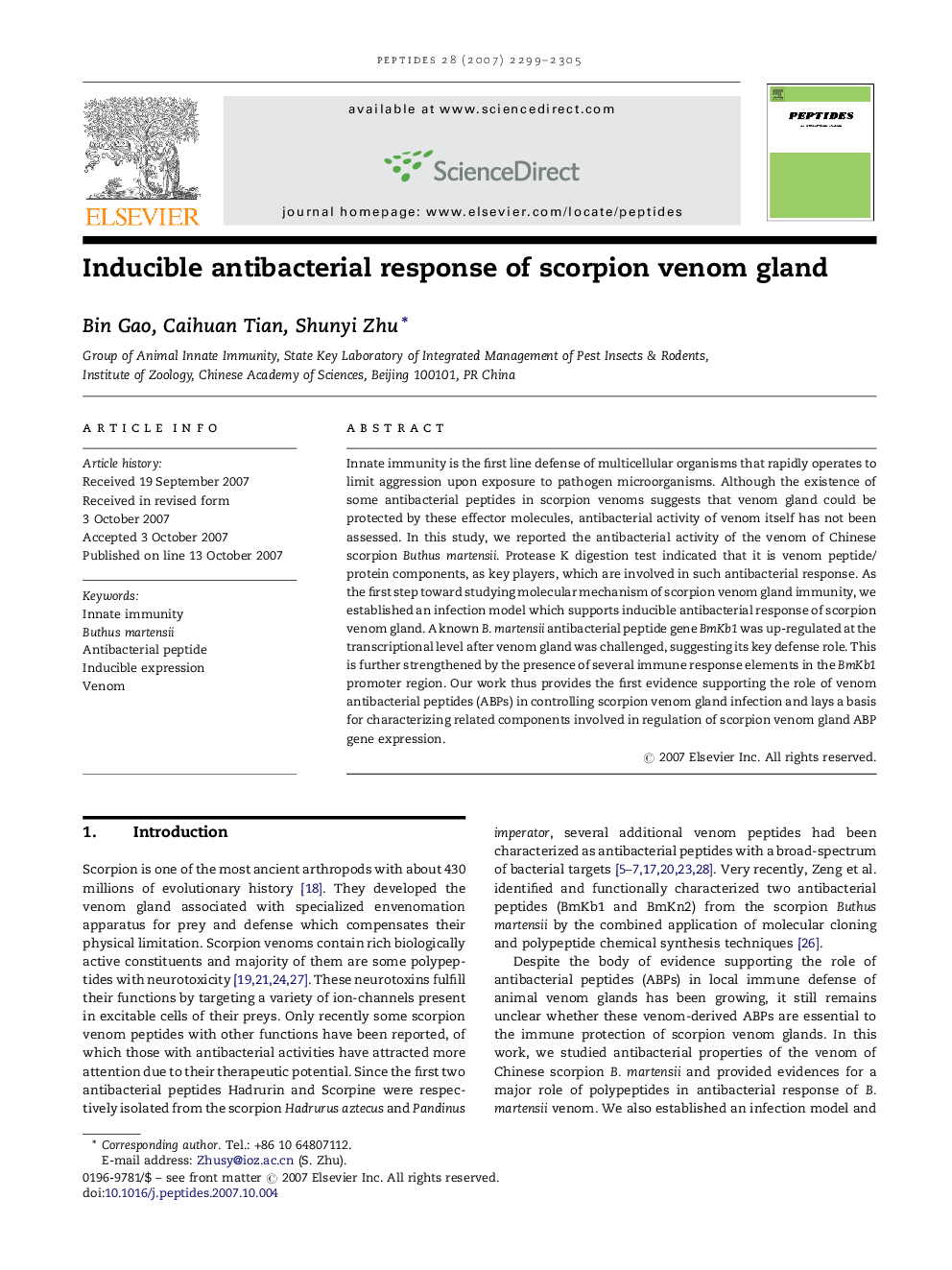| کد مقاله | کد نشریه | سال انتشار | مقاله انگلیسی | نسخه تمام متن |
|---|---|---|---|---|
| 2007449 | 1066375 | 2007 | 7 صفحه PDF | دانلود رایگان |

Innate immunity is the first line defense of multicellular organisms that rapidly operates to limit aggression upon exposure to pathogen microorganisms. Although the existence of some antibacterial peptides in scorpion venoms suggests that venom gland could be protected by these effector molecules, antibacterial activity of venom itself has not been assessed. In this study, we reported the antibacterial activity of the venom of Chinese scorpion Buthus martensii. Protease K digestion test indicated that it is venom peptide/protein components, as key players, which are involved in such antibacterial response. As the first step toward studying molecular mechanism of scorpion venom gland immunity, we established an infection model which supports inducible antibacterial response of scorpion venom gland. A known B. martensii antibacterial peptide gene BmKb1 was up-regulated at the transcriptional level after venom gland was challenged, suggesting its key defense role. This is further strengthened by the presence of several immune response elements in the BmKb1 promoter region. Our work thus provides the first evidence supporting the role of venom antibacterial peptides (ABPs) in controlling scorpion venom gland infection and lays a basis for characterizing related components involved in regulation of scorpion venom gland ABP gene expression.
Journal: Peptides - Volume 28, Issue 12, December 2007, Pages 2299–2305